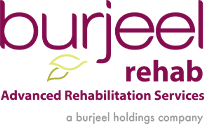Pain relief is a fundamental aspect of healthcare aimed at alleviating discomfort and improving quality of life for individuals experiencing acute or chronic pain. Through a variety of innovative modalities and interventions, healthcare providers employ tailored approaches to target pain at its source, enhance healing, and promote overall well-being.
Significances
Multidisciplinary Approach
Pain relief is addressed through a multidisciplinary approach that may include pharmacological interventions, physical therapy, psychological support, complementary therapies, and lifestyle modifications. This comprehensive approach ensures that pain is managed effectively and holistically, considering physical, emotional, and social factors.
Individualized Treatment
Pain relief strategies are personalized to each individual's unique needs, preferences, and underlying conditions. Healthcare providers work collaboratively with patients to develop tailored treatment plans that address the root causes of pain and optimize therapeutic outcomes.
Improved Functionality
Effective pain relief enables individuals to regain function, mobility, and independence, allowing them to engage in daily activities, work, and recreational pursuits without limitations or discomfort. By reducing pain, individuals can enhance their overall quality of life and well-being.
Enhanced Healing
Pain relief modalities not only alleviate symptoms but also promote healing and tissue repair. By targeting inflammation, improving circulation, and modulating pain signals, these interventions accelerate recovery from injuries, surgeries, and chronic conditions.
Long-Term Management
Pain relief extends beyond immediate symptom relief to encompass long-term management and prevention of pain recurrence. Through education, self-management strategies, and ongoing support, individuals learn to effectively manage their pain and optimize their health and wellness over time.
Approaches to Support Pain Relief
Comprehensive Evaluation
Undergo a thorough assessment by a healthcare provider to identify the underlying causes of pain, assess its impact on daily functioning, and develop a personalized treatment plan tailored to your specific needs and goals.
Collaborative Care
Work closely with a multidisciplinary team of healthcare professionals, including physicians, physical therapists, pain specialists, psychologists, and other specialists, to address pain from various perspectives and implement comprehensive treatment strategies.
Holistic Interventions
Embrace a holistic approach to pain relief that integrates pharmacological treatments with non-pharmacological interventions, such as physical therapy, acupuncture, massage therapy, mindfulness-based stress reduction, and nutritional counseling, to address pain from multiple angles and optimize outcomes.
Patient Education
Empower yourself with knowledge about your condition, treatment options, and self-care strategies to effectively manage your pain and make informed decisions about your healthcare. Education plays a vital role in pain relief by promoting self-awareness, self-management skills, and adherence to treatment plans.
Lifestyle Modifications
Adopt healthy lifestyle habits, such as regular exercise, proper nutrition, stress management techniques, adequate sleep, and avoidance of harmful substances, to support pain relief, enhance healing, and promote overall well-being. Lifestyle modifications complement other pain relief interventions and contribute to long-term pain management and prevention.


